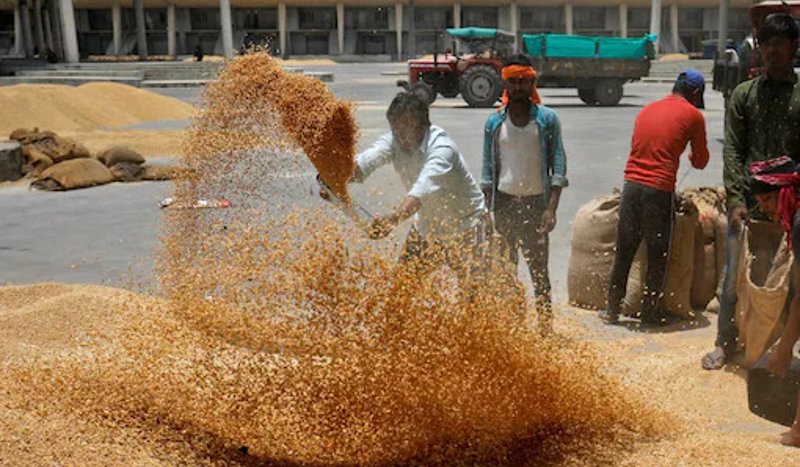The United Arab Emirates (UAE) has announced a four-month ban of wheat and wheat products export and re-export from India, the world’s second largest producer of the grain. UAE’s ministry of economy cited disruptions in global trade flows as the reason for the decision.
“The ban applies to all wheat varieties namely hard, ordinary and soft wheat and wheat flour. A moratorium has been imposed on the export and re-export of wheat and wheat flour originating from the Republic of India, including free zones, for a period of four months starting from May 13, 2022,” said the United Arab Emirates Ministry of Economy.
The ministry also stated that India had permitted wheat export to the UAE for local consumption. In February, the UAE and India struck a wide trade and investment agreement that aims to reduce all tariffs on each other’s goods and grow their annual commerce to 100 billion USD within five years.
UAE’s economy ministry stated that the move was motivated by worldwide trends. Sources state that the decision of the United Arab Emirates is essentially an assurance that everything it imports will be used solely for domestic use.
“India doesn’t want its wheat exported to Dubai or Abu Dhabi to go out to other countries, whether as grain or flour. It would want that wheat to be consumed locally, including the migrant Indian workers in UAE,” a trade sources told The Indian Express.
India had restricted wheat exports on May 14, 2022, with the exception of those secured by letters of credit (LCs) already issued and to countries striving to ensure food security. Since then, 469,202 tonnes of wheat have been shipped. Companies intending to export or re-export Indian wheat brought into the UAE before to May 13, when India’s embargo began, must first apply to the economy ministry, according to a statement.
Delhi-based exporter Rajesh Paharia Jain said to BusinessLine that the wheat flour exports had increased sharply after India’s ban on wheat exports.
“Wheat prices have declined after the ban and this had made exports of flour feasible even if an importing nation was to levy 70 per cent Customs duty,” he said.
Reports state that most of the wheat shipments from India are headed to South-East and West Asia.
“Wheat flour has limited shelf life compared to wheat. So, it can be shipped to far-off places,” said an export-import official of an international trading firm to BusinessLine.
Some other traders say that Indian wheat flour is currently being sold between 350 USD and 400 USD per tonne. India had restricted wheat exports after a heatwave swept throughout the country in March-April, and the Food Corporation of India (FCI) was unable to scoop up adequate inventories for buffer stocks.
According to Commerce Ministry data, India exported 95,094 tonnes of wheat flour globally, worth 314 crore in April 2022, compared to a total of 5.66 lakh tonnes worth 1,842 crore in the fiscal year 2021-22. In 2020-21, 2,78 lakh tonnes of wheat flour were exported overseas, compared to 1.99 lakh tonnes in 2019-20.
UAE’s annual wheat consumption, which is entirely imported, is estimated to be 15 lt by the US Department of Agriculture. In 2021-22, India exported 4.71 lakh tonnes (lt) of wheat to the UAE, valued at 136.53 million USD. This accounted for around 6.5 percent of its total 72.35 lt cereal shipments worth 2,120.27 million USD in the previous fiscal year.
Russia accounts for more than half of the UAE’s wheat imports, followed by Canada, Ukraine, and Australia. India emerged as a prominent supplier in 2020-21, shipping 1.88 million tonnes. Some sources say that the global wheat supply situation should ease somewhat, with the harvesting and market arrivals of Russian and Ukrainian wheat from July.
The Ministry of Agriculture estimates wheat production at 106 million tonnes, down from original expectations of a record 111.32 million tonnes. The FCI obtained less than 19 million tonnes, compared to 43.33 million tonnes obtained in 2021.
